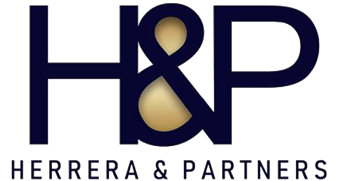
Even with the problems brought with covid-19, the Aerospace manufacturing is increasing in Asia and growing continuously because of the rapid increase of transportation, tourism, and logistics.
Thailand is on a prime geographic location in the region, with a previous industrial expertise from a robust automotive industry that can lead to achieve a quick growth in the aviation business. In order to attract foreign investment and build up a sustainable Thailand Aerospace industry, there are agencies such as the Board of Investment (BOI) and The Eastern Economic Corridor Office of Thailand (EEC).
The law and regulation in 2020 related to the aerospace industry is the Investment promotion act B.E. 2520(1977), the Eastern Special Development Zone Act B.E.2561(2018) and the Air Navigation Act B.E. 2479(1954). Nevertheless, from a legal perspective, the aerospace industry a key industry that requires a more attractive legal framework to attract more investment. H&P lawyers in Bangkok would like to summarize what is the current regulations for the aerospace industry in Thailand:
The Eastern Special Development Zone is a government policy to develop the Eastern Economic Corridor (EEC). The EEC covers an area between Chachoengsao, Chon Buri, and Rayong provinces. As the aerospace is regarded, the Thai regulator is aware that the country need to develop the Utapao area to be the Eastern Aviation hub that includes the industry of Maintenance, Repairs, and Overhauls (MRO).
To do business in the Aerospace sector in Thailand, we should follow the section 41/24 and section 41/94 of The Air Navigation Act B.E. 2497(1954) that specifies that a limited company or public limited company with no less than fifty-one percent of its total shares held by persons of Thai nationality. So The Civil Aviation Authority of Thailand (CAAT) and EEC establishes the Notification of The Eastern Economic Corridor Office of Thailand a qualification of the person who applied for production or MRO license of aircraft in the EEC.
The investment incentive package for investment projects in the Eastern Economic Corridor (2020-2021) includes:
1-Tax holidays up to 13 years.
2-On Personal Income Tax. Foreign employees in the Promoted zones are subjected to 17% personal income tax. This promotion also applies to their parents, spouse, and children. Foreign executives working at their headquarters or international trading companies in the EEC are subjected to 15% personal income tax.
3-On Import Duties. Exemption of import duties on machinery. Exemption of import duties on raw materials for production and R&D.
4-Special Deductions. Additional tax deductions granted for certain expenses such as R&D on technology and innovation, production line upgrade. Investments that are new to Thailand or using advanced manufacturing technologies in targeted industries may be entitled to special incentives.
5-Financial Transaction. Business operators are exempted from the Law on Foreign Currency Exchange Control and can use foreign currencies in the Promoted Zones.
6-Land and Real Estate Ownership. Foreign entitles can own land and properties for their business operation. Foreign entitles are also allowed to own properties for residential purposes. Foreign entities are entitled to enter into lease/sublease/lease-out contract of land or real estate within the Promoted Zones for 50 years and renew upon approval for 49 years.
7-Immigration and Residence in Thailand. Foreign experts/executives/specialists, including their spouses and dependent persons, can enter and reside in the Kingdom of Thailand.
The investment incentive package from Thailand Board of Investment
Thailand Board of Investment (BOI) prescribes the investment promotion policies under the Investment Promotion Act. The applicant who follows the conditions prescribed by the Board of Investment as specified in the BOI promotion certificate in manufacture or repair of aircraft, or Aerospace Devices and Equipment will be granted as follows:
1-Manufacture of Aircraft or Aircraft Parts such ass airframe, critical parts, appliance equipment or other components, Manufacture of Aerospace Devices and Equipment such as devices or equipment related to rockets/spacecraft/space vehicles/propulsion units and auxiliary equipment, etc, and aerospace Operating Systems such as search, detection, navigation, guidance, aeronautical, nautical systems and instruments, etc. This provides knowledge-based activities focusing on R&D and design to enhance the country’s competitiveness. Basic Incentives are exemption of Corporate Income Tax 8 years no cap, exemption of import duties on machinery, Exemption of import duties on raw materials used in R&D, exemption of import duties on raw materials used in production for export and Non-tax incentives.
2-Repair of Aircraft or Aircraft parts. This provides infrastructure activities for the country’s development, activities using advanced technology to create value-added. Basic Incentives are exemption of corporate income tax for 8 years, exemption of import duties on machinery, exemption of import duties on raw materials used in production for export and Non-tax incentives.
3-Manufacture of Onboard devices or equipment (except disposable and reusable aircraft utilities and supplies) such as seats, lift vests, trolley, galley, etc. This provides high technology activities that are important to the development of the country. Basic Incentives are exemption of corporate income tax for 5 years, exemption of import duties on machinery, exemption of import duties on raw materials used in production for export and Non-tax incentives
4-Repair of Onboard Devices or Equipment (except disposable and reusable aircraft utilities and supplies). This provides technology to add value to domestic resources and strengthen the supply chain. Incentives are exemption of corporate income tax 3 years, exemption of import duties on machinery, exemption of import duties on raw materials used in production for export and Non-tax incentives.
In order to stimulate more investments or spending on activities that benefit the country or industry, the BOI stipulates additional incentives based on the merits of the project such as Merit for competitiveness, Merit on decentralization or Merit for industrial area development.
If you need to speak with a lawyer with expertise on Aerospace in Thailand, please contact with H&P lawyers in Bangkok at [email protected]


